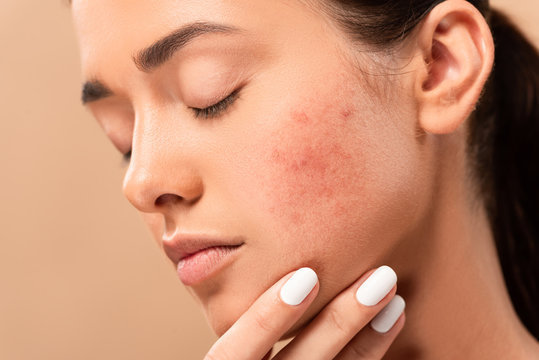
At Tulsi Wellness Club, we are dedicated to uncovering the best natural and scientific approaches to skincare. One ingredient that has garnered significant attention in the world of skincare is hyaluronic acid. Known for its hydrating and anti-aging properties, many people wonder whether hyaluronic acid can also play a role in managing acne. In this article, we’ll explore how hyaluronic acid interacts with acne-prone skin, its benefits, and how to incorporate it into your skincare routine effectively.
Understanding Hyaluronic Acid
Hyaluronic acid is a naturally occurring substance in the body, primarily found in connective tissues, skin, and eyes. It is renowned for its remarkable ability to retain moisture—holding up to 1,000 times its weight in water. This unique property makes it a popular ingredient in skincare products aimed at hydrating and plumping the skin.
Hyaluronic Acid and Acne: How It Works
When it comes to acne, hyaluronic acid offers several potential benefits:
1. Hydration Without Clogging Pores
One of the key issues with acne-prone skin is finding a moisturizer that hydrates without clogging pores. Hyaluronic acid is a lightweight, non-comedogenic (non-pore-clogging) ingredient. It hydrates the skin by drawing moisture from the environment and deeper layers of the skin, helping to maintain optimal hydration levels without contributing to acne.
2. Healing and Repair
Acne can leave the skin damaged and inflamed. Hyaluronic acid promotes the healing process by keeping the skin hydrated and supporting its natural repair mechanisms. Well-hydrated skin is more resilient and can recover from acne-related damage more effectively.
3. Balancing Skin Moisture
Acne treatments, especially those containing ingredients like benzoyl peroxide or salicylic acid, can often lead to dryness and irritation. Hyaluronic acid helps balance skin moisture levels, mitigating the dryness and flakiness that can result from acne treatments.
4. Soothing Inflammation
Hyaluronic acid has soothing properties that can help calm irritated and inflamed skin. By reducing inflammation, it may help alleviate some of the redness and discomfort associated with acne.
Incorporating Hyaluronic Acid into Your Skincare Routine
To maximize the benefits of hyaluronic acid for acne-prone skin, follow these tips:
1. Choose the Right Product
Look for hyaluronic acid serums or moisturizers that are specifically formulated for acne-prone skin. These products are usually free of heavy oils and comedogenic ingredients. Opt for a serum or gel-based product for a lightweight feel.
2. Apply on Damp Skin
For optimal hydration, apply hyaluronic acid products to slightly damp skin. This helps lock in moisture and enhances the product’s effectiveness.
3. Use Consistently
Incorporate hyaluronic acid into your daily skincare routine. Consistent use helps maintain hydration levels and supports skin healing over time.
4. Combine with Other Acne Treatments
Hyaluronic acid can be used alongside other acne treatments. However, it’s essential to layer it properly and avoid combining it with ingredients that might irritate the skin. For instance, apply hyaluronic acid after applying acne treatments like retinoids or benzoyl peroxide.
Additional Tips for Managing Acne
While hyaluronic acid can be a valuable addition to your skincare routine, managing acne effectively often requires a comprehensive approach:
- Maintain a Balanced Skincare Routine: Use gentle cleansers and avoid over-exfoliating, which can exacerbate acne.
- Stay Hydrated: Drinking plenty of water supports overall skin health and hydration.
- Consult a Health Professional: For persistent or severe acne, consulting a health professional can provide tailored advice and treatment options.
Conclusion
At Tulsi Wellness Club, we believe in the power of natural and scientifically-backed solutions to enhance your skincare routine. Hyaluronic acid is a versatile ingredient that can benefit acne-prone skin by providing hydration, supporting healing, and reducing inflammation. When used correctly, it can complement other acne treatments and contribute to healthier, more balanced skin.
If you have questions about incorporating hyaluronic acid into your skincare regimen or need personalized advice, reach out to Tulsi Wellness Club. Our experts are here to help you navigate your journey to clearer, more radiant skin with effective, natural solutions.
Dr. Davis Francis
Contact Me


